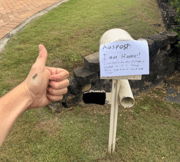SDC Rewards Member
Upgrade yours now
Australians lost a DEVASTATING amount in scams just last month – exceeding $38 MILLION
The internet can be a dangerous place if you’re not careful. Scammers are becoming more and more sophisticated in manipulating an increasing number of Australians who lost over $38 million just last month, falling victim to fraudulent schemes typically masked as investment opportunities or romantic interests.
Aside from investment frauds, there are other clever and sophisticated ways that scammers use to trick unsuspecting citizens. The SDC has previously alerted members about how scammers are now disguising themselves as myGov employees and sending emails to Centrelink recipients.
Data taken from the Australian Competition and Consumer Commission’s Scamwatch site shows that they received upwards of 18,300 reports last February, with people racking up losses of $38,106,474. The most frequent schemes are fake investments, resulting in a loss of over $27,700,000. For the entire year of 2021, Australians lost a devastating total of $323 million in scams.
Image Credit: Readers Digest Asia
Last Friday, the consumer watchdog instituted Federal Court proceedings against Facebook owner Meta Platforms, Inc. alleging that they took part in false, misleading, and deceptive conduct by passively allowing the existence of scam advertisements on their online platform that feature prominent Australian public figures, including former NSW premier Mike Baird, TV personality David Koch, businessman Dick Smith, and so on – when these people never approved or endorsed them.
ACCC chairman Rod Sims said an increasing focus on celebrities and crypto scams “has risen very quickly and is a major problem that must be dealt with by the platforms”. The ACCC also mentioned knowing one consumer who lost more than $650,000 on a fabricated investment opportunity from an ad on Facebook.
“The essence of our case is that Meta is responsible for these ads that it publishes on its platform.” ACCC Chair Rod Sims said.
“It is a key part of Meta’s business to enable advertisers to target users who are most likely to click on the link in an ad to visit the ad’s landing page, using Facebook algorithms. Those visits to landing pages from ads generate substantial revenue for Facebook.”
“We allege that the technology of Meta enabled these ads to be targeted to users most likely to engage with the ads, that Meta assured its users it would detect and prevent spam and promote safety on Facebook, but it failed to prevent the publication of other similar celebrity endorsement cryptocurrency scam ads on its pages or warn users.” he continued.
Retired intensive care specialist Professor Malcolm Fisher lost $10,000 in an alleged investment scam despite taking precautions by checking the company’s bonafide with the Australian Securities and Investments Commission.
Professor Malcolm Fisher. Image Credit: 12ft.io
Professor Malcolm Fisher, who was head of Royal North Shore Hospital’s intensive care unit, unknowingly signed up for the scheme in October last year after getting an unexpected phone call from a woman who claimed to be representing an investment company called QPE Securities.
“They had a very impressive website and an ASIC listing,” he said. “It’s a pretty sophisticated set-up.”
Professor Fisher said he made sure to check the company’s ASIC record and discovered that they were registered with an ABN and an ACN. He was provided with a comprehensive market preview, a daily report on his investment, a local bank account, and an adviser that he regularly consulted with on the phone using a local number.
He added that the initial public offerings (IPOs) that the company recommended, which he refused to buy, had done well at the time. He later realised that overseas IPOs were a ‘standard scammer tool’.
“Although the scam has been reported to Fraud Squad, ASIC, and Scamwatch the website is still there and the ASIC registrations remain.” he said.
He initially invested $10,000 and then $18,000, which seemed to be doing well at first as he was making money from day trading. This was put on a halt when his bank contacted him to say they blocked his account after detecting ‘nefarious trading’. Professor Fisher initially didn’t believe the bank when they informed him that QPE Securities was operating a scam.
He explained that the company had an address in Chifley Tower to which the bank officer responded: “Oh dear… everyone has an address in Chifley Tower.”
And so Professor Fisher decided to get to the bottom of things by showing up at Chifley Tower in an attempt to front the company representatives he had been talking to on the phone and on email, but the concierge found no record of the company he was referring to in the building. The concierge told him he received numerous calls each day for companies with a false Chifley Tower address.
While the bank was still able to successfully retrieve his latter payment of $18,000 made in December, they failed to get a hold of the former $10,000.
ASIC warned consumers that holding an Australian financial services licence does not automatically guarantee a company’s probity or quality of its services.
The amount Australians lost to all scams in 2020 compared with 2021. Image Credit: Proofpoint, ACCC Scamwatch
Cybersecurity expert Paul Haskell-Dowland said people behind a variety of scams often are heavily prepared with well-rehearsed scripts and a sense of realism in sounding like they are operating out of a call centre.
Scammers also invest their resources in employing real staff, and technology which they use to send emails and text messages en masse.
“Scams tend to be more successful when they appeal to human nature with a ‘value proposition’ that is attractive. Threats of fines, penalties or criminal proceedings were among examples.”
“Scammers also used current events including sporting tournaments, conflicts and disasters. Or they appealed to common desires including getting gifts or an opportunity for romance.
“It is commonly believed that only a minority of scam-related incidents are ever reported. It is highly likely that victims of investment, dating and romance scams (at a personal level) don’t report out of shame and/or embarrassment. As such, the ‘real’ cost and volume of cases will be much higher than any published figures.” he said.
Money Smart Australia provides several steps to reduce the risk of investment scams.
You may check their list of fake regulators and exchanges or their list of companies you should not deal with.
They also advised others to check in with the International Organisation of Security Commission’s (IOSO) investor alerts as an extra precaution to make sure the company is not named.
If you think you have been scammed, Money Smart Australia suggests you report the case to your bank or financial institution immediately, and then proceed by contacting ASIC or your local police. You may also get support from Lifeline (13 11 14) or the National Debt Helpline (1800 007 007) if you need it.
If you ever notice a scam or unfortunately fall victim to one, please post the information about the scam in our Scam Watch Thread on our website. We have previously had a member who was a victim of a scam by the company ‘Coupon65’ and let us know. By doing this, this member saved thousands of our members from also falling victim to the same scam. By looking out for one another, we can do our best to avoid all online scams. To learn more about the Coupon65 scam, you can read our post here.
What are your thoughts on this story? Share it with us below!
Here are a couple of tips on how to avoid falling victim to an online financial scam that you can watch below!
Video Credit: ABC News In-depth





